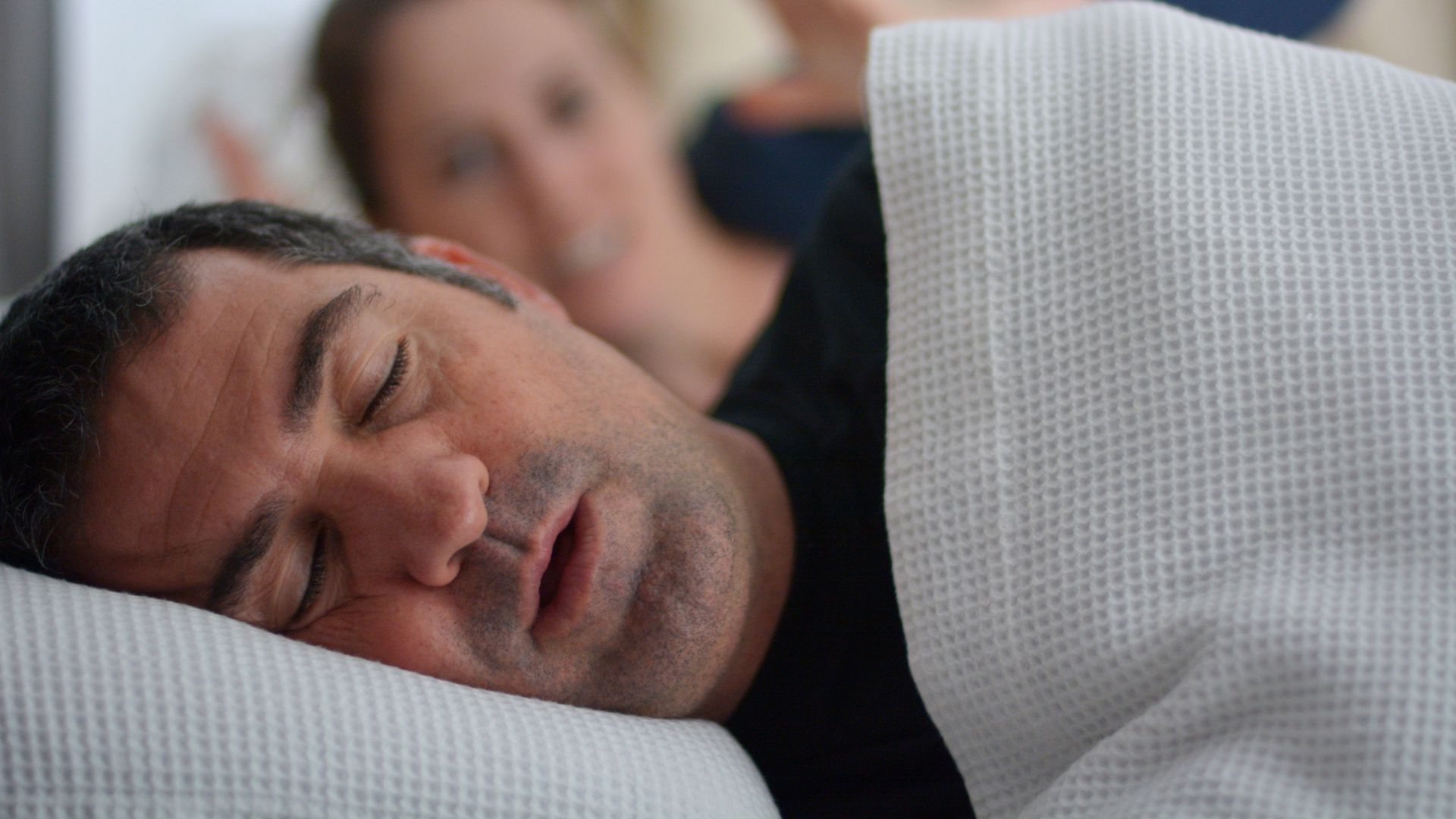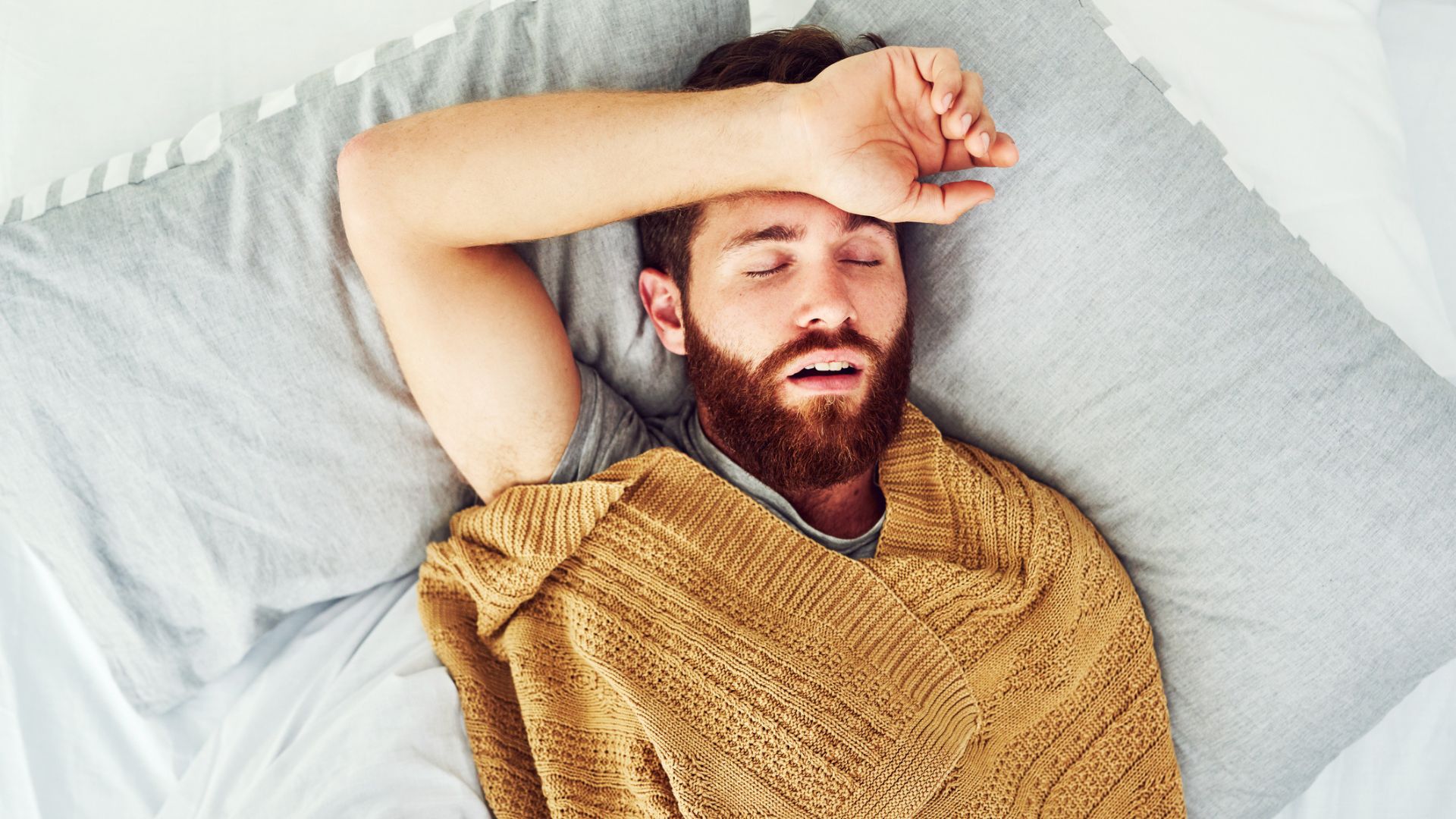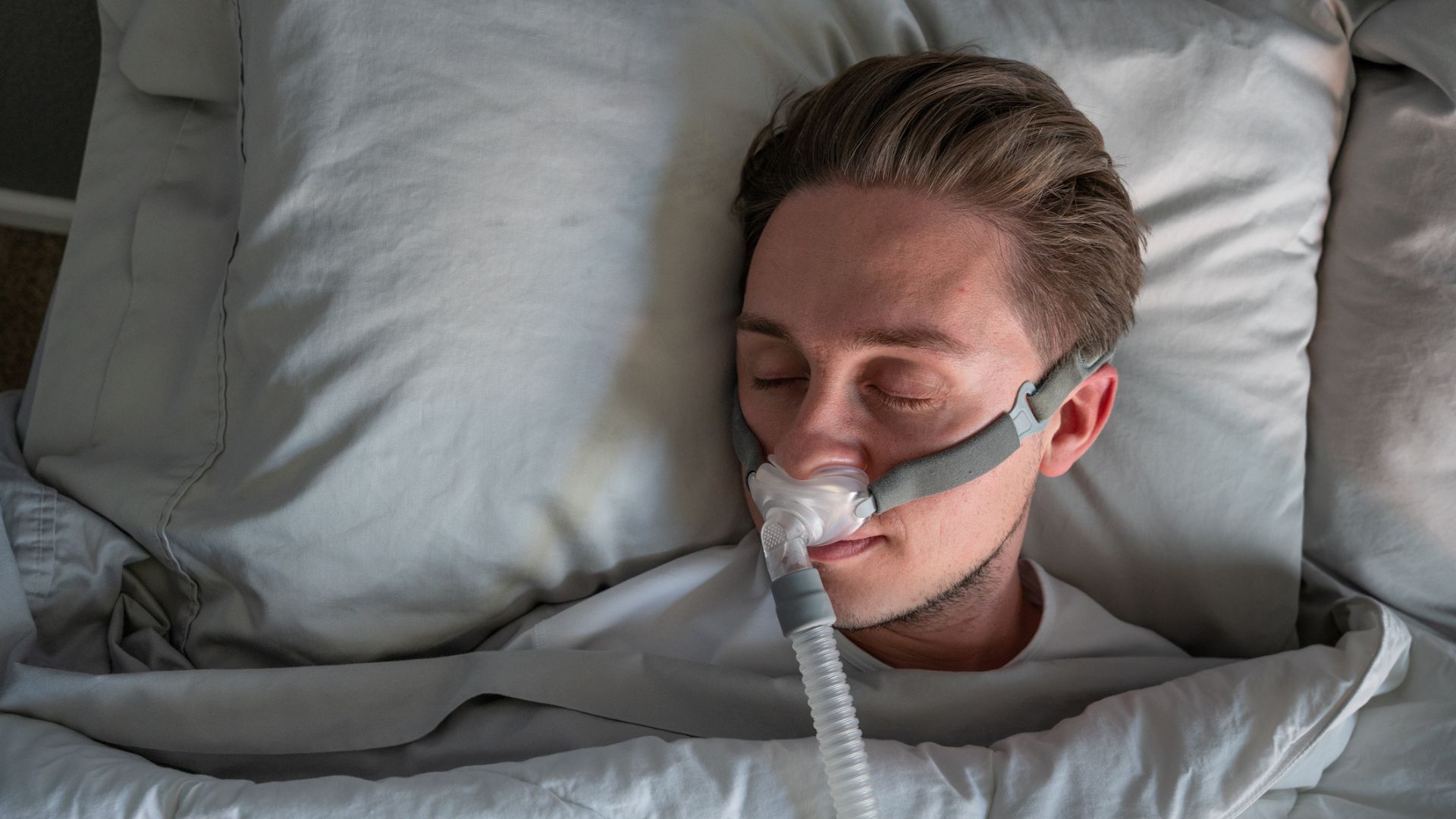FDA approves first ever medication for obstructive sleep apnea — here's what that means
The drug works on moderate to severe OSA in adults with obesity

Statistics show that obstructive sleep apnea (OSA) is a common disorder affecting around 30 million adults in the US. In a recent press release, the American Food and Drug Administration has approved the first ever prescription medicine to tackle this condition.
Zepbound (tirzepatide), a weight-loss drug, has now been approved by medical experts to effectively improve OSA by reducing appetite and food intake. This is because it was observed that while anyone can be affected by it, OSA is more prevalent in people who are obese or overweight. The decision was made based on the results of two clinical trials on 469 adults on whom the drug was administered for 52 weeks.
Key Takeaways
- Obstructive Sleep Apnea is more common in those who have obesity
- Zepbound improves moderate to severe OSA by reducing body weight
- The drug should only be taken under doctor’s guidance as it can have certain side effects while some may be allergic to tirzepatide, the active ingredient in it.
OSA happens when a person’s upper airway gets blocked which then causes pauses in breathing during sleep. Zepbound was found to work on moderate to severe obstructive apnea in adults with obesity, based on the results of two randomized, placebo-controlled studies on 469 individuals with type 2 diabetes.
While one study involved participants using positive airway pressure or PAP (the standard treatment for OSA), the other enrolled those who were unwilling or unable to use the same. All participants received either 10 or 15 milligrams of Zepbound or placebo over a period of 52 weeks.
The primary monitoring parameter was the change in the baseline of apnea hypopnea index (AHI), which is a measurement of how many times a person stops breathing (apnea) or takes in shallow breaths (hypopnea) during sleep. At the end of 52 weeks, it was found that participants who received Zepbound showed reduced levels of apnea or hypoapnea compared to those who were administered the placebo drug.

What is Obstructive Sleep Apnea?
There are two types of sleep apnea: central sleep apnea (CSA), a condition where the brain fails to stimulate breathing, and obstructive sleep apnea (OSA), which occurs when breathing repeatedly starts and stops as throat muscles relax too much during sleep, blocking the airways. If left untreated, OSA will affect overall sleep quality which can have a host of other health implications including mental health issues.
While it can even affect children, certain factors place some individuals at more risk than others. Experts underline that obesity, smoking, consumption of alcohol and poor sleep habits can develop OSA. Old age or any existing deformities like enlarged tonsils or adenoids, thick neck circumference or narrow air ways can also exacerbate the condition.
Sign up to get the BEST of Tom's Guide direct to your inbox.
Get instant access to breaking news, the hottest reviews, great deals and helpful tips.
How does tirzepatide reduce sleep apnea symptoms?
Tirzepatide is the active ingredient in Zepbound, the FDA approved prescription medicine for Obstructive Sleep Apnea. Research shows that it considerably improves the level of AHI in patients with OSA.
This happens as it activates the two hormones secreted from the intestine: (glucagon-like peptide-1 (GLP-1) and glucose-dependent insulinotropic polypeptide (GIP)), which in turn reduces appetite and fat mass in individuals.
The two clinical trials also saw a decrease in the body weight of those who were given the drug, which makes it seem that the improvement in AHI and sleep apnea symptoms in those with OSA is related to weight reduction due to Zepbound.
- Read more: ERA Smart Layer transforms your mattress into a health device — and masseuse
- Read more: Can the right pillow really help reduce sleep apnea symptoms? Yes, here's how
Other Obstructive Sleep Apnea treatment options
The FDA prescribed drug is for obese patients so not everyone with OSA will be eligible to take the same. Note that you can't cure sleep apnea but it is possible to minimize its impact. Other standard sleep apnea treatment options available are:
CPAP machines
Continuous Positive Airway Pressure (CPAP) machines are the most common treatment for OSA. This includes a sleep apnea mask which delivers a consistent stream of pressurized air which opens up the airways and prevents any blocks. However, certain patients don't like using CPAP machines as these can prove to be quite uncomfortable during sleep.

Mouthguards
These are a popular alternative to the CPAP machines since they're easier to use and stick with. Sleep apnea mouthguards work by supporting the lower jaw and keeping the airways open. Mandibular Advancement Devices are the most commonly used mouthguards for sleep apnea. These help keep the airways open by holding the lower jaw and tongue further forward.
Surgery
There are different types of surgery administered depending on the severity of sleep apnea. This includes Uvulopalatopharyngoplasty (UPPP) which involves the removal of excess tissue from the throat which may be causing the airway blocks, jaw surgery or even the installation of upper airway stimulation devices underneath the clavicle to keep the airways open.
Laser therapy
This is a relatively new option to treat sleep apnea compared to the others. Laser therapy can be used to tighten the throat tissues to rid any obstruction of the airways. According to experts, NightLase treatments are an FDA approved non-invasive option to treat mild to moderate sleep apnea issues.

Lifestyle changes
Research has shown that obesity is one of the major lifestyle factors leading to obstructive sleep apnea. This is because overweight individuals often have excess tissues in their throats which can block the airways and result in troubled breathing during sleep.
Other triggers include smoking or consumption of alcohol which can worsen any existing conditions or develop symptoms. As mentioned in the FDA approval for Zepbound, weight loss is often a primary recommendation for those struggling with both sleep apnea and obesity.

Becky is a Sleep Staff Writer at Tom’s Guide covering all things sleep-related including product reviews, research studies, news and explainers. She works on specialist bedding content and is responsible for buyer’s guides like the best pillows for all sleepers and best mattress protectors focusing on popular brands such as Tempur-Pedic, Avocado, Coop Home Goods and more. Becky is a PPA accredited journalist who is keen to explore the intricacies of sleep, its effects on skincare, mental wellbeing and work performance. While not thinking of sleep, she can be seen reading in cosy bookshops or learning about global food culture.
